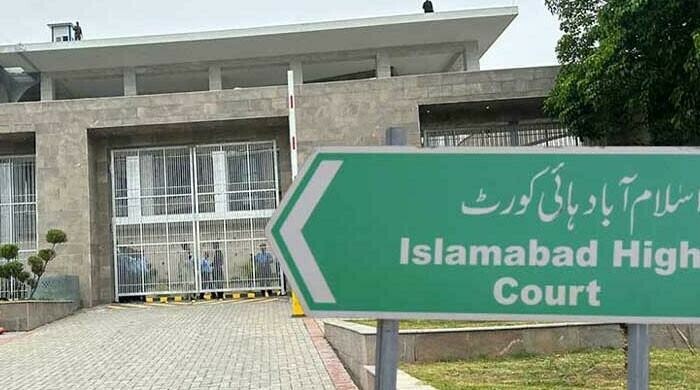ISLAMABAD; The Islamabad High Court (IHC) on Monday issued contempt of court notices to Prime Minister Shehbaz Sharif and all federal cabinet members for failing to submit a report on the long-standing case of Dr Aafia Siddiqui, a Pakistani neuroscientist incarcerated in the United States since 2008.

Justice Sardar Ejaz Ishaq Khan, presiding over the hearing, expressed strong disapproval of the government’s continued negligence in responding to the plea filed by Dr Aafia’s sister, Dr Fauzia Siddiqui. The petition seeks updates on Dr Aafia’s deteriorating health and demands her repatriation from the U.S.
“I am issuing a contempt of court notice to every member of the federal cabinet,” Justice Ishaq stated firmly, dictating a short order. He further announced that the next hearing would be held on the first working day after the court’s summer holidays, underscoring the urgency of the matter.
Dr Aafia Siddiqui, a former MIT-trained neuroscientist, has been imprisoned in the U.S. for over 14 years. In 2010, she was sentenced to 86 years in prison by a New York court on charges of attempting to kill American soldiers and FBI agents while in custody in Afghanistan. The controversial case has long drawn attention and criticism in Pakistan, where many believe she was wrongfully prosecuted and harshly punished.
Currently detained at the Federal Medical Center, Carswell — a high-security prison in Fort Worth, Texas — Dr Aafia’s health has reportedly declined over the years. In a desperate move earlier this year, she filed a clemency petition to then-U.S. President Joe Biden, calling her sentence “a blatant miscarriage of justice.” However, her plea was rejected just hours before the power transition in the White House.
During the hearing, Justice Ishaq voiced his concern over the administrative handling of Dr Fauzia’s petition. He revealed that although the case was scheduled for hearing on Monday, he was informed on Thursday that the cause list — the schedule of cases — had been altered.
“The personal secretary informed me about the roster change,” Justice Ishaq said. “I instructed him to write to the Chief Justice regarding the matter.” He criticized the IHC Chief Justice’s Office for allegedly obstructing the listing of the case. “Did the Chief Justice not have even 30 seconds to sign the cause list?” he asked, implying that deliberate delays were being used to avoid judicial scrutiny.
The judge condemned the use of administrative powers to influence judicial proceedings. “Once again, administrative authority is being used to interfere with judicial power. I will not allow justice to be undermined,” Justice Ishaq declared, vowing to uphold the independence and dignity of the high court.
By issuing contempt notices to the entire federal cabinet, the IHC has sent a strong message regarding the state’s responsibilities in pursuing Dr Aafia’s case. The court’s action underscores growing frustration with the government’s inaction on a matter that remains highly sensitive and emotionally charged in Pakistan.
The next hearing after the court holidays will likely set the tone for further legal pressure on the federal government to take concrete steps toward addressing both Dr Aafia’s health concerns and the diplomatic efforts for her return.
























